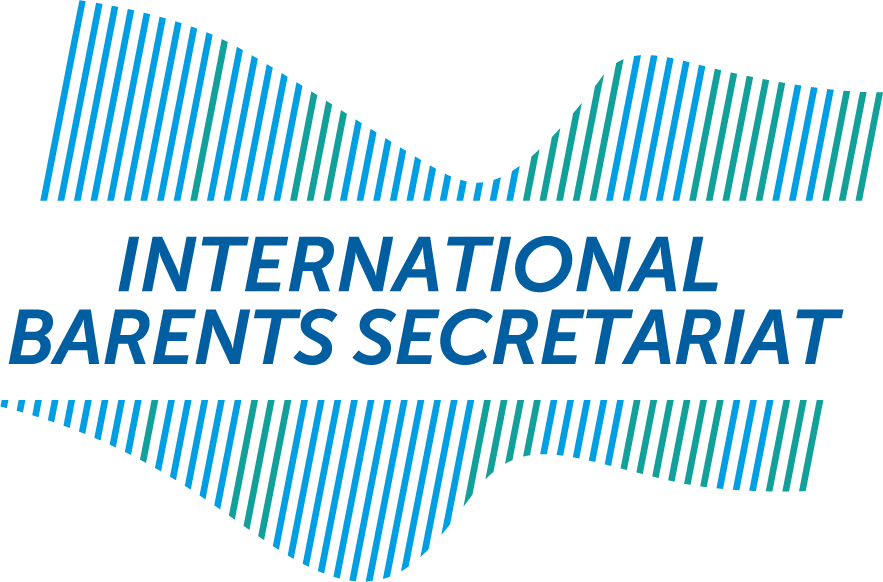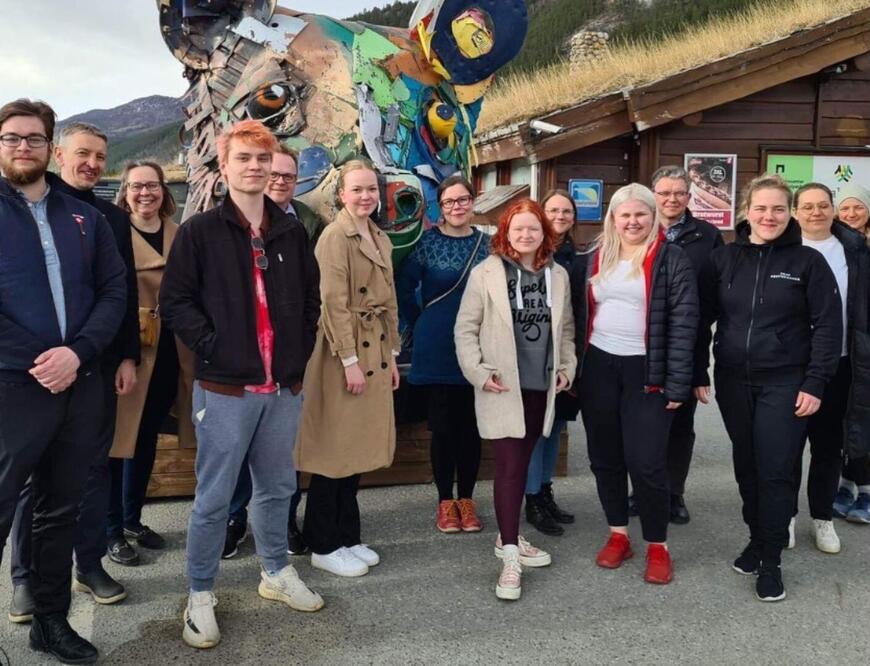
The Norwegian Barents Secretariat (NBS) main task is to contribute to creating a better society in Northern Norway through international cooperation with our neighboring countries in the Barents region. NBS are owned by the county municipalities in Nordland, Troms and Finnmark, while NBS' support schemes. NBS' is mainly financed by the Ministry of Local Government and Districts. NBS' office is located in the center of Kirkenes.
Youth cooperation is an area of priority for the NBS. The Secretariat plays an important part in the implementation of the The Barents Regional Youth Programme, which offers young people opportunities for mobility and active participation in the Barents Cooperation and the development of the Barents Region.
Read more about the Norwegian Barents Secretariat, HERE.
Barents Regional Council (BRC)
The Barents Regional Council unites 14 member counties and a representative of the indigenous peoples in the northernmost parts of Finland, Norway and Sweden and North-West Russia.
At the same time as the BEAC was established in 1993 by the signing of the Kirkenes Declaration, the regional representatives, together with the indigenous peoples signed a co-operation protocol that established the Regional Council for the Barents Euro-Arctic Region with the same objectives as the BEAC - to support and promote co-operation and development in the Barents Region. The protocol determines the structure and the general aims of the regional co-operation.
The BRC is the main financial supporter of BRYC. Each year, the youth council receives an annual grant of 5000 EUR, or an in-kind contribution of a similar size, from each member region of the BRC. BRYC is (since 2018) seen as an official member of the BRC. This platform is our most important way of promoting youth's interests to regional and national decision makers.
Read more about the BRC, HERE.
Barents Working Group on Youth (WGY)
The main purpose of the Barents Working Group on Youth (WGY) is to further promote young people’s active citizenship and strengthen the networks and international contacts of young people. The working group consists of representatives from the ministerial and regional administrative levels of authorities responsible for youth policy. It plays an important part in the implementation of the Barents Youth Programme and therefore has a close cooperation with BRYC.
In 2002, the WGY (founded as JWGY Joint Working Group on Youth) was founded at the Barents Youth Cooperation Office (BYCO) in Murmansk. BYCO's purpose was to provide information to youth groups about funding opportunities, potential partners and relevant activities in the Barents Region. The JWGY gave BYCO its mandate and funding, while BYCO reported back to the Working Group. BYCO was operating until 2016, and due to unforseen financial circumstances, the Office was forced to close down.
Read more about the WGY, HERE.

International Barents Secretariat (IBS)
The purpose of the International Barents Secretariat (IBS) is to support the multilateral activities within the Barents Euro-Arctic Council and the Barents Regional Council.
The IBS aims to increase and secure the coherence and efficiency of the Barents cooperation. To this end, the IBS assists the biannually rotating governmental and regional Chairs in their tasks and thus guarantees the seamless continuity of the cooperation. Also, the IBS supports the Barents Working Groups. The IBS maintains the Barents Euro-Arctic Council and the Barents Regional Council archives and serves as an information database, as well as maintains contacts with other organisations and stakeholders operating in the Barents and Arctic regions, the national and regional authorities of the Member States and the media.
BRYC often works closely with the IBS around projects and events relevant for youth. The IBS also operates as the administrative body, secretariat and coordinator for the Barents Regional Youth Council.
Read more about the IBS, HERE.
The Nordic Council of Ministers is the forum for Nordic governmental co-operation. Denmark, Finland, Iceland, Norway and Sweden have been members of the Nordic Council of Ministers since 1971. In addition, Greenland, the Faroe Islands and Åland have also increased their representation and position in the Nordic Council of Ministers, with the same representation as the above mentioned countries.
The Nordic Council of Ministers’ most important criterion for granting project funding is that the projects must benefit the Nordic countries and the adjacent areas. The projects must generate Nordic synergy. The principle of “Nordic synergy” is a crucial factor in deciding which activities should come under the umbrella of joint Nordic cooperation.
Read more about the Nordic Council of Ministers, HERE.


